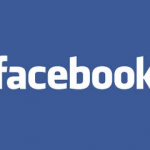 New York — In an unfortunate blow to Google’s controversial plans to create the world’s biggest digital library, a bookstore and expand its Internet dominance, has run into the reality of a 300-year-old legal predicament: copyright, which has now been shelved by a federal judge in New York on Tuesday rejected a sweeping $125 million legal settlement the company had worked out with authors and publishers, saying the terms “simply go too far” in giving Google an advantage over competitors and copyright holders.
New York — In an unfortunate blow to Google’s controversial plans to create the world’s biggest digital library, a bookstore and expand its Internet dominance, has run into the reality of a 300-year-old legal predicament: copyright, which has now been shelved by a federal judge in New York on Tuesday rejected a sweeping $125 million legal settlement the company had worked out with authors and publishers, saying the terms “simply go too far” in giving Google an advantage over competitors and copyright holders.
Barring further legal maneuvering, the proposed Google Books Settlement — which would have cleared the way for Google’s ambitious plan to scan, digitize, and distribute millions of works ever published and make them widely available–will not stand as is.
In a ruling filed in the US district court in Manhattan, Judge Denny Chin of the 2nd Circuit Court of Appeals, ruled the company had gone “too far” in its ambitious plans and said the deal would “arguably give Google control over the search market.”
Particularly, Chin rejected a legal settlement with authors and publishers that Google accomplished in 2008. He added the deal also presented concerns about privacy, since Google could potentially collect information on what kinds of books people were reading.

Judge Denny Chin said the legal settlement with publishers and authors would have granted Google a “de facto monopoly.” Image Courtesy: (Todd Heisler/The New York Times)
Interestingly, the class action settlement, which Google accomplished in 2008, came after the Authors Guild and the Association of American Publishers sued Google to stop the company from scanning books and putting them on the Web. Under the terms of the deal, Google said it would pay $125 million and allow authors and publishers to collect money anytime their books are viewed online.
Judge Chin conveyed his opinions in a court document refreshingly light on legalese. He wrote, “While the digitization of books and the creation of a universal digital library would benefit many, the ASA [Amended Settlement Agreement] would simply go too far. It would permit this class action . . . to implement a forward-looking business arrangement that would grant Google significant rights to exploit entire books, without permission of the copyright owners.”
Critics of the deal cheered the judge’s decision.
“This opinion is, in effect, an example of the big issues that Google is confronting in Washington,” said Gary Reback, an antitrust lawyer and leader of the Open Book Alliance, a group that opposed the settlement. “We think it is as much as we could have asked for. We are very pleased with it.”
“We believe the court delivered the right decision on this complex, proposed settlement,” said Gina Talamona, a spokeswoman for the Justice Department. “We are pleased that the court supported our position.”
The search engine giant has digitized millions of books, many preserved at some of the world’s greatest libraries including Oxford University’s Bodleian and Harvard’s libraries, and exhibited them online via its eBooks platform. The plan has split the publishing industry and attracted fierce criticism from authors and rival tech firms.

The court’s decision throws into legal limbo one of Google’s most ambitious projects: a plan to digitize millions of books from libraries, such as this rare, antique Bible. Image Courtesy: (Carlos Osorio/Associated Press)
Lastly, the judge finished, “I conclude that the ASA is not fair, adequate, and reasonable. As the United States and other objectors have noted, many of the concerns raised in the objections would be ameliorated if the ASA were converted from an ‘opt-out’ settlement to an ‘opt-in’ settlement.”
Google on Tuesday promised to continue digitizing books, only a portion of which are affected by the settlement, which would have allowed Google to sell access to millions of out-of-print books to consumers and libraries.
“This is clearly disappointing, but we will review the court’s decision and consider our options,” said Hilary Ware, managing counsel at Google. “Like many others, we believe this agreement has the potential to open up access to millions of books that are currently hard to find in the U.S. Today.”
Google could appeal the decision or attempt to satisfy the judge’s concerns by negotiating a new settlement; it would almost certainly be the quickest and easiest way to resolve the matter, which has been in lawyers’ hands for years.
John Sargent, the chief executive of Macmillan, spoke on behalf of the publishers, which included Penguin Group USA, McGraw-Hill, Pearson Education, Simon & Schuster and John Wiley & Sons.
“The publisher plaintiffs are prepared to enter into a narrower settlement along those lines to take advantage of its groundbreaking opportunities,” Sargent said in a statement. “We hope the other parties will do so as well.”
He further aded: “The publisher plaintiffs are prepared to modify the settlement agreement to gain approval. We plan to work together with Google, the Authors Guild and others to overcome the objections raised by the court and promote the fundamental principle behind our lawsuit, that copyrighted content cannot be used without the permission of the owner, or outside the law.”


